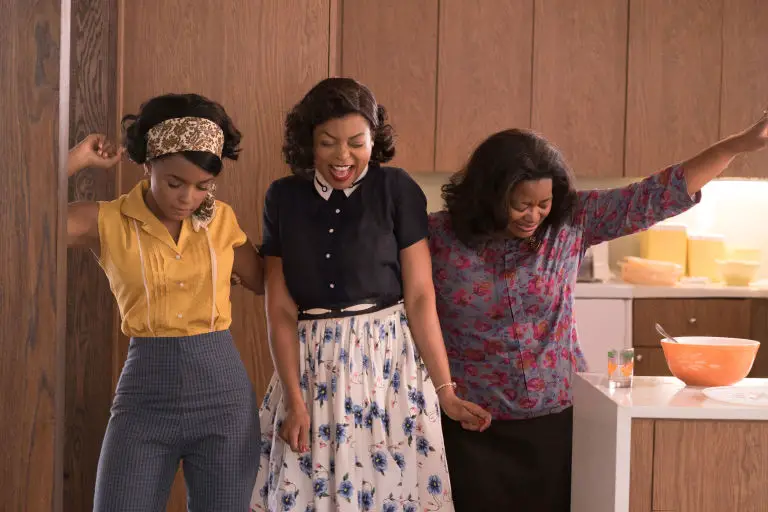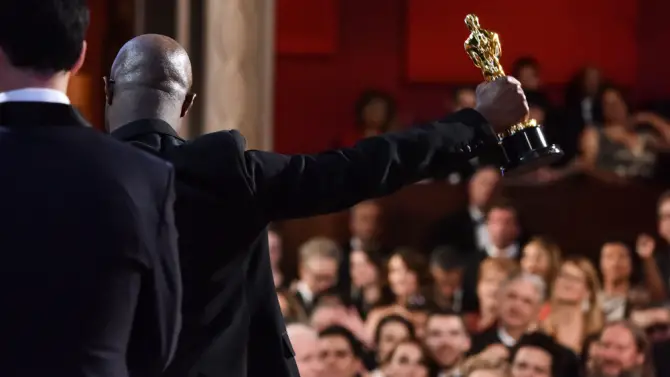Hidden Stories
If the Oscars are any indication, the hottest Hollywood buzzword is ‘representation,’ and it’s about time.
By Ben Zhang, Duke University
A funny thing happened at the Academy Awards this year.
I’m not talking about the epic mix-up that will be talked about for many decades to come or the fact that the ceremony as a whole became, to borrow a phrase, a little less #SoWhite.
No, what struck me was the nature of the movies nominated for the top awards. Some of the most talked-about films this awards season centered around the telling of stories that are rarely portrayed in American cinema. 2016, it seems, was the year of the forgotten men and women in more ways than one.
Perhaps the most notable of these films is “Hidden Figures,” the feel-good story of the African-American women who played key roles at NASA during the Space Race. The stories of Katherine Johnson, Dorothy Vaughan and Mary Jackson have been hidden for many years, having been only recently brought to light in a novel by Margot Lee Shetterly. There is a lot to like in the film adaptation, which depicts the three women’s struggles to overcome ingrained sexism and racism in a country slowly beginning to embrace the movement for civil rights.

While “Hidden Figures” racked up big box office numbers, some less-heralded Best Picture nominees also garnered acclaim for focusing on overlooked segments of the populace. Best Supporting Actress winner Viola Davis noted during her acceptance speech that “Fences” playwright August Wilson “exhumed and exalted the ordinary people.”
Best Picture winner “Moonlight” made headlines around the country for its portrayal of the “triple crisis of growing up black, gay and poor.” Chiron, the protagonist, struggles with his sexuality as he grows up in the Liberty City neighborhood of Miami and must deal with often-unpleasant consequences as a result. His story, based in part on the life of playwright Tarell Alvin McCraney, is always thought-provoking and occasionally gut-wrenching.
The success of the aforementioned films indicates that a shift in attitudes may be occurring. As of late, people across the nation seem more receptive to movies honoring minorities and the marginalized. Many individuals engage in a never-ending battle to have their voices heard, and their efforts may just be starting to pay off. The Oscar winners are the more noteworthy examples, but even films that didn’t make it to the major award ceremonies are capable of receiving attention.
Take, for example, “The Man Who Knew Infinity,” a biopic that tells the story of Srinivasa Ramanujan, who revolutionized several fields of mathematics. Growing up in India in the late 1800s, Ramanujan began producing remarkable mathematical results despite a lack of formal training. His successes eventually led him to England, where he partnered with two top mathematicians of the day at Cambridge. After several years of publishing results, Ramanujan’s lifelong health problems finally caught up to him, and he passed away in 1920 at the age of thirty-two.
Unfortunately, his time in England was marked by racial prejudices that made life difficult for him and damaged his legacy. Even today, despite his impressive body of work and inspiring rags-to-riches story, Ramanujan remains largely unknown in the West. However, as the release of “The Man Who Knew Infinity” and subsequent media coverage shows, his relative obscurity may not be in effect much longer.
Why is it so important that people like Ramanujan and films like “Moonlight” be recognized? As previously stated, they can provide exposure or credit that was well-deserved but never given.
More important, however, is the issue of trust, which among Americans has fallen in recent years to all-time lows. With racial tensions constantly on the rise, things are only bound to get worse. Everyone has their own theory as to what should be done to solve the country’s problems, but no plans will succeed if people do not make an effort to understand each other.
A fact often lost in nationwide discussions is that individual experiences vary widely from person to person. Films such as “Fences” and “Hidden Figures” can provide glimpses of such experiences to the previously unaware, and help people see where others are coming from. With enough exposure, the understanding that is often absent today can be acquired, and the trust that is currently slipping among Americans can be regained. Only then will it be possible to effectively address other important issues.
Of course, relying completely on films to help unite the country is dangerous, as they are not without their faults.
While “Hidden Figures” is quite entertaining, for instance, it is plagued (as Hollywood films often are) with historical inaccuracies. Several of the movie’s pivotal scenes, including one in which Katherine Johnson’s boss smashes a “colored only” restroom sign, were fabrications of the screenwriters. And Johnson herself once said during an interview that she didn’t feel much of the segregation depicted in the movie while working at NASA.
“The Man Who Knew Infinity” also struggles at times to be faithful to its subject. By descending into formulas and clichés of the biopic genre, it may cause people to develop an alternative view of history, which can often be as dangerous as having no view at all.
In the end, however, the benefits of watching films with lesser-known subjects outweigh their drawbacks. Such movies will challenge audiences’ preconceptions and cause them to examine the ways they view other people. The thought of this may make some queasy, upon which they will start to find excuses for avoiding the films altogether. These excuses are often unjustified and should be challenged.
For example, a recent Honest Trailer labelled “Moonlight” as having “all of the Oscar things.” Though perhaps in jest, the idea of the film being Oscar bait is a silly one that shouldn’t be given much credence.
While it may be easier for people to find solace in the latest action thriller or Disney reboot, they should be challenged to get out of their comfort zones and explore other genres. Perhaps then, movies with $1.5 million budgets could continue to take home the biggest prize on Oscar night, inspiring filmmakers to keep exploring the stories usually left by the wayside.
Ultimately, people may feel obligated to try treating each other with more respect and dignity, and society may no longer shun individuals because they are different. The janitors from Quincy would certainly be grateful.

















